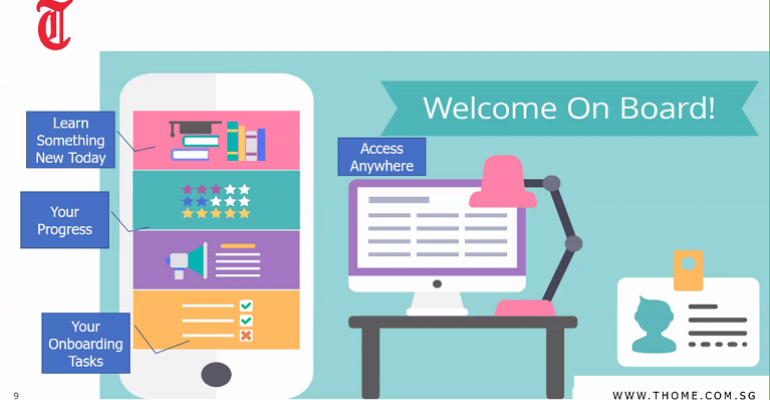Speaking at CrewConnect Europe Virtual Event, Simon Frank, chief human resources officer for Thome Group, outlined the opportunities and challenges presented by the emerging methodologies of micro-learning and just-in-time training.
Describing the current training landscape Frank said: “If we look at maritime education and training today we are to certain extent very controlled by industry setting firm targets on how training should be done, and for a period of many years now there has been a need to have more flexible to modern techniques, and many are struggling with how this could work.
“It’s all more or less frontloaded training so that means it may be months and years before the officers and ratings may actually need to use the training learned in a classroom onboard a ship,” he explained. “Onboard training resources are often limited and have to compete with daily work onboard the ships.” In addition training content may not be regularly updated.
With the digitalisation of training he sees a lot of opportunities ahead. “The key to all these technologies is to give the control to the trainee and learners hands, it is a clear shift from our modus operandi if we look at the maritime industry as a whole in which training is driven by the trainer.”
This presents opportunities for micro-learning is an emerging methodology where training is provided in smaller units to allow for easy absorption of content by the trainee. This can go in tandem with just-in-time learning.
“As a key requirement to provide the training in this methodology it is provide right amount on precisely the issue the trainee needs, so it will be given in small packs,” Frank explained.
“Our current methodology total relies on loading up the information to the individual in one go and hoping he retains some of it. With the tools of the digital age we can provide the right training at the right time.”
But that are challenges to these methodologies especially shipboard. “To make this a success it requires an infrastructure which allows the trainee to locate the right information with the least effort and that infrastructure needs to be able to work on the ships,” Frank explained. However, setting up such infrastructure on vessel can be challenging compared to an office on land, especially in the initial stages.
With training in small units it needs to be carefully structured otherwise run the risk of imparting incomplete knowledge to the trainee. There also remains the issue of the way industry is heavily regulated.
Despite the challenges Frank believes the new methodologies offer the potential for a system that continually updates the training of staff.
“A typical ideal scenario is where the basics and specialist skills are covered in shore based training centres combined with just in time training… providing training exactly where and when needed. This will allow us to limit shore training to key elements rather than front loading the whole entire package with the just in case approach,” he explained.
Copyright © 2024. All rights reserved. Seatrade, a trading name of Informa Markets (UK) Limited.
Add Seatrade Maritime News to your Google News feed.  |

